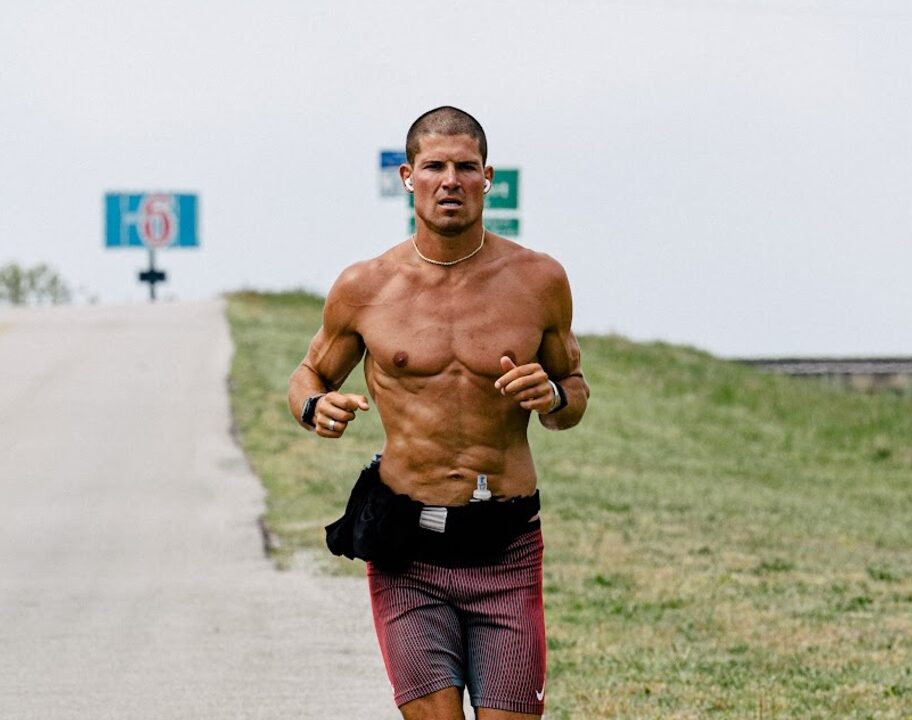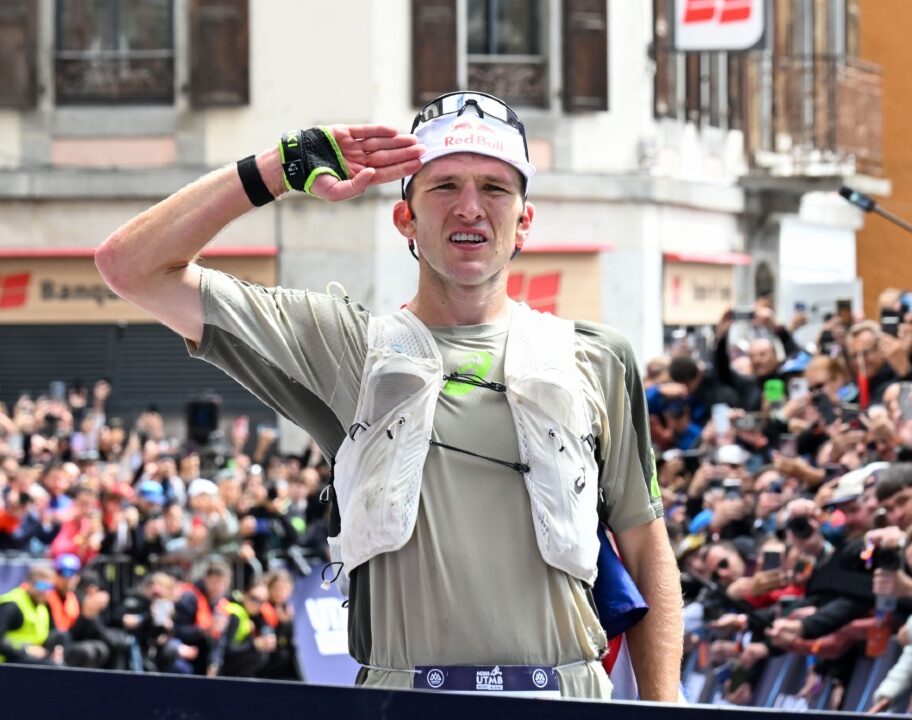Having come agonisingly close to the win last year, Jack Scott put together what has been described as “one of the great performances in British ultra-running history” to break the Montane Winter Spine Race record.
The analysis of his achievement above was given by none other than Damian Hall, the man who beat Scott to the win last year after the pair finished together but Scott had a penalty added on to his finishing time.
Talking with his sponsor Inov-8 after this year’s victory, where the tables were turned and Hall finished second, Scott recounts how he prepared in training to run the 268-mile course in 72:55:05.
“Last year was the perfect dress rehearsal”
Sharing the lessons he learnt from his podium finish in 2023, Scott described last year’s race as a great justification to not try anything crazy in training and stick with what he knew worked best.

“Last year was the perfect dress rehearsal and I didn’t need to do anything differently in training this time round. I simply wanted to come in happy and healthy with a quiet, steely confidence.”
The Brit added that by working with a psychologist, he was able to mentally prepare himself to surpass his previous performance and aim to go even faster.
“I was wary of a return because 2023 had gone so well that I wanted to protect that performance and not jeopardise it. I worked with my psychologist and he helped me realise that to run the race I knew I was capable of, I had to analyse last year.
“To do that I needed to extract the positives and negatives then leave it alone and start afresh. The run and the memories would still be within me, but I didn’t need to have them at the forefront of my mind, I needed clarity and focus for this year’s race.
“Alongside some tweaks to kit, I did the most basic but overlooked thing of all: I got better at running slower, in the dark, on the course. I believed I could win the race and did the calculation that If I moved 0.1 miles an hour faster I would come in at 82 hours.”
Emphasis on freshness and avoiding overtraining
In the build up to the race, Scott revealed that he averaged just over 50 miles of running a week, as he focused his energy on the race and getting the little things right.

“For the Spine 2024 training camp I averaged 52 miles a week with 11,000ft of elevation, accompanied by five gym sessions.
“This got me to the start line fresh and well below the overtrained line, with a willingness to suffer when I needed to. I was happy, healthy and ready. I closed my circle in tight, I declined media opportunities and I came off social media.
“I kept a focus and clear vision of touching the wall first. The introduction of huge names to the start list was a blessing for me. If I was going to run the race I knew I was capable of, then there was no better year to prove it than 2024.”
The sleep dilemma
One of the most talked about topics in the aftermath of the Spine Race was how little Scott slept, despite breaking the previous course record by ten hours.

Admitting that sleeping less than an hour wasn’t part of the plan, the Brit said he simply focused on making smart decision in the moment.
“Much has been said about my lack of sleep during the 2024. But in preparation I kept it simple and didn’t specifically plan to run the race on less than one hour’s sleep!
“That said, I knew I wanted to make it to Checkpoint Three at Langdon Beck before sleep. If I was struggling before then and had to shut my eyes, then the likelihood is I would lose touch with the leaders and leave myself too much to do in the second half of the race.
“My plan was to stay awake, assess the race every hour and make decisions at the time with the information and feelings in front of me.”
His willingness to take things as they came paid dividends after three days of racing, when he touched the fabled stone in Kirk Yetholm and shattered Jasmin Paris’ course record by more than ten hours.






